
This is Wednesday Martin, PhD. Look into her eyyyyes.
65. the clitoris and the culture: horizontal with wednesday martin phd
People say “do what you love.” And I love sleepovers, spooning, sharing, sex, storytelling, and stargazing, among other things. So I metaphorically rolled them all up in audio form and called it a podcast. Welcome to horizontal! It’s Slow Radio. It’s intimacies of all kinds. It’s us in your ears, sharing secrets.
Wednesday: It is a reconsideration of female infidelity — that’s why it’s called Untrue — right, “untrue” is a euphemism we used to use for women who were refusing monogamy, either on the DL or openly. But it’s also a play on words, because I’m looking at science about female sexuality that’s false, and that has been revisited. But the book is part first-person experience, and part data.
Lila: And you know I love the first-person experience.
Wednesday: And you love the first-person experience and I get it. […] So the context here is that I considered myself— and was a catastrophe at monogamy throughout my 20s. That was a real struggle. There were a lot of awkward scenes and tears—
Lila: As in you were, you were trying bef—
Wednesday: I was trying, and consistently getting sexually bored at the one or two year mark and, rather than having a conversation about it which, really wasn’t an option in the culture at the time — it was an option if you were a gay man, or in an open marriage or relationship, but it wasn’t in common practice to have monogamy discussions when I was (among heterosexuals) when I was in my 20s living in New York City. So that’s the context. So after being a catastrophe at monogamy in my 20s:
It was a relief when, in my mid-thirties, I found someone I lusted for and loved and could imagine settling down with, someone with whom I could have children and a life. Someone to whom I could stay true. It calmed the sexual static in my brain for a time. I was soon pregnant, and then exhausted by the demands of caring for an infant, who became a toddler, who became a preschooler, and then the whole thing began again with a second child. But when the heaviest lifting phase of motherhood subsided, when the nursing and the late nights were over and I came back to myself, a grown-up in command of her own mind and body again, I discovered that, although I wore a wedding ring on my left hand, not much had changed. My husband and I were thankfully back to having sex—sex I enjoyed, and plenty of it. So why, in my mind, was I faithless? I had fantasies I did not want to share, daydreams that were more graphic than soft focus and romantic. I liked sexually explicit novels and movies as much as I had before, maybe even more so. And I entertained crushes on wholly inappropriate objects—men who were married, or too young for me, or too old for me. I had crushes on women too, even though I was pretty sure I wasn’t gay or even bisexual. What kind of a wife and mother felt this way?
I was older now, and my work as a writer afforded me some autonomy in my intellectual and professional pursuits. I queried therapists and open-minded mommy friends and experts, and turned again to anthropology and primatology, particularly the writing of feminist anthropologists, and the new, game-changing sex research being done by women. What was sexually normal for women? Why was it so hard to be true?
My list of questions was long. I wanted to know: Who is the woman who steps out? And why does she do it? Are her motivations different from a man’s? What separates the woman who actually cheats from those who merely think about it? How do women who stray experience their infidelity, and live with it? And why do we as a society feel the way we do about these women—riveted, triggered, convinced that they must be contained, corrected, and punished, that something must be done about them? Finally, I wondered, what larger lessons can the adulteress teach us—about female longing and lust, about our fixation on women we deem “deceptive,” and about the past, present, and future of partnership and commitment?
I also wanted to know how things had changed for young women since I had been one. And how those changes were impacting the lives of women across a range of ages, socioeconomic groups, and identities.
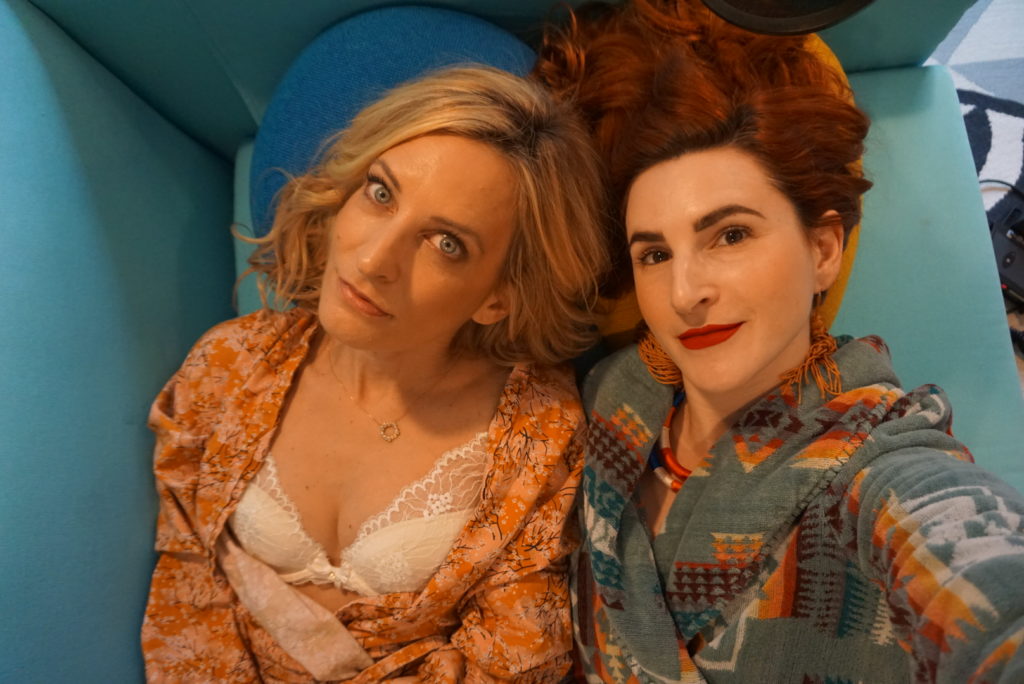
horizontal with Wednesday Martin in Manhattan. January 2019
People say “do what you love.” And I love sleepovers, spooning, sharing, sex, storytelling, and stargazing, among other things. So I metaphorically rolled them all up in audio form and called it a podcast. Welcome to horizontal! It’s Slow Radio. It’s intimacies of all kinds. It’s us in your ears, sharing secrets.
If you’ve been listening, you know that each recording is between 2 and 3 hours long, and divided into two episodes. Part ones are available anywhere you get your podcasts, and part twos are available only to patrons of the horizontal arts. Right now, when you become my patron of $5 per month or more, you get access to all the part twos going forward, and going back to the beginning.
In a month or two, some big changes are coming to the podcast and the Patreon. When I launch Season 3, those who already have access to all the episodes will be grandfathered in at the same patronage level, with my deep gratitude for being an early listener. In other words, if you want access to all the episodes for $5+ per month, become a patron Now and lock that down! Fair warning, lovers!
I have an announcement.
I’m over-the-moon delighted to share the details of my Valentine’s Day event, a spectacular Spectacular. It’s called
and it will be an intimate, immersive, sensual Valentine’s experience.
I usually don’t like Valentine’s Day very much, for obvious reasons. So I’m throwing a Valentine’s that I would want to attend.
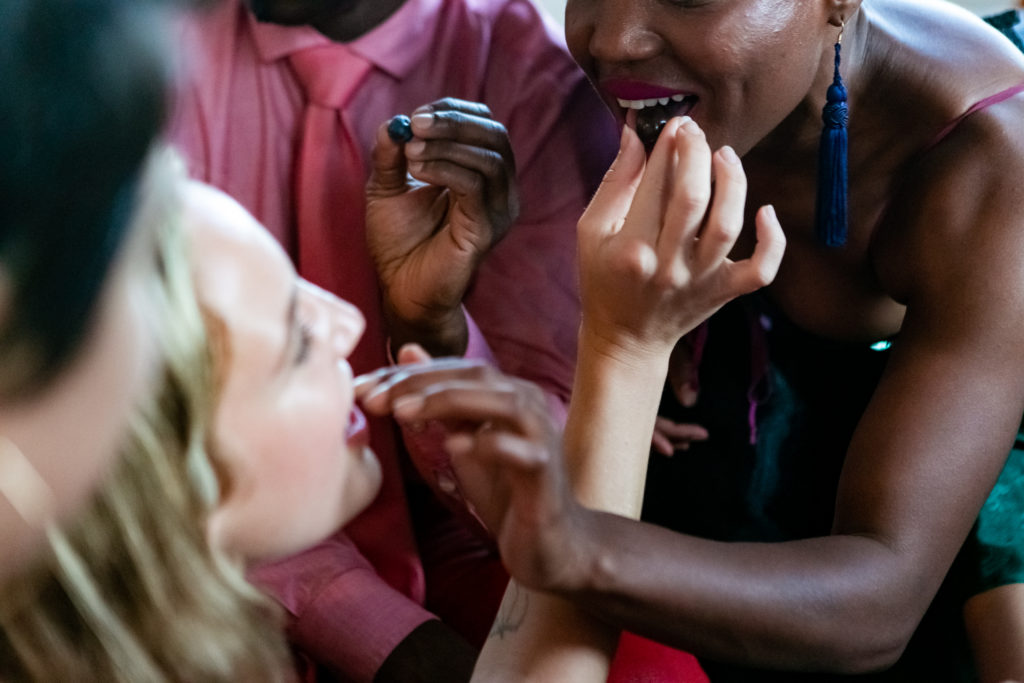
Image by Valerie Zimmer Photography
A townhouse full of delights for all the senses, including:
4-handed massages
live erotica readings
the best hot cocoa you’ve ever tasted
sensual performances
sweet smells from the oven
a hot tub
and a giant teddy bear named Tiny.
And that’s not even what’s in the 14 rooms…
Each room unlocks a secret: an intimate, immersive rendezvous.
Your ticket comes with 5 tokens, which you can exchange for delights and experiences. Choose how to spend them — on treats, on libations, on a rendezvous or two. If you wish to collect more experiences (there are 14 rooms of delight, after all!) you may purchase more tokens for $5 each, cash, from someone very prettily dressed. 1 token for a treat, 2 tokens for a rendezvous.
This event is for people not in relationships + people in relationships + people in situationships + people who frankly don’t give a damn + everyone, Everyone. Let’s celebrate sensuality and loveliness all together!
Come Valentine’s with us!
Okay, here we go.
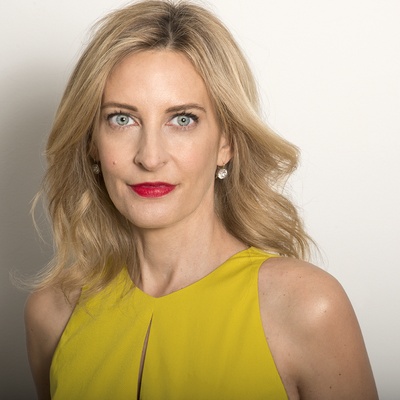 In this episode, I lie down with Wednesday Martin, PhD, #1 New York Times bestselling author, social researcher, anthropology scholar, and one of the most knowledgeable people about female sexuality on the planet.
In this episode, I lie down with Wednesday Martin, PhD, #1 New York Times bestselling author, social researcher, anthropology scholar, and one of the most knowledgeable people about female sexuality on the planet.
She would demur, and say that she merely interviewed 31 female sexuality experts across a range of disciplines, but I’ll say that she has integrated, synthesized, and made their work widely accessible. She’s managed to harmonize a vast array of historical, anthropological, scientific, and anecdotal wisdom on the subject.
She is the author of many books, all in some way about quote unquote bad women. Marlene Dietrich, stepmothers, the rich mommies of the Upper East Side, and now, adulteresses.
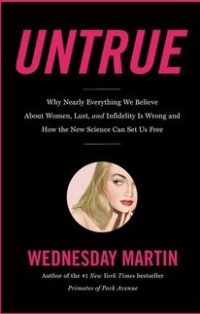 In her new book Untrue: Why Nearly Everything We Believe About Women, Lust, and Infidelity Is Wrong and How the New Science Can Set Us Free, she debunks fallacy after fallacy, and highlights the conditions that invite female sexual autonomy to flourish. In other words, a woman after my own heart.
In her new book Untrue: Why Nearly Everything We Believe About Women, Lust, and Infidelity Is Wrong and How the New Science Can Set Us Free, she debunks fallacy after fallacy, and highlights the conditions that invite female sexual autonomy to flourish. In other words, a woman after my own heart.
I admire Wednesday’s career immensely. I hope to have the kind of reach and grandiosity, some soon day. She said it’s gonna happen. I’ll just take her word for it, since her words have gotten her where she is!
In this first part of our conversation, we talk about social media’s crackdown on sex educators, the dark legacy of abstinence-only education, male attempts to control female sexuality and reproduction, and female counter-strategies, the single worst thing to ever happen to women, how the transition from tribal living to nuclear family homes cost women an important power base, a surefire formula for the uniquely human female dependence on men, and how, for me, living in a sex-positive community provides a counter-formula.
Next week’s episode with Wednesday, episode #66, is available to patrons only.
These are such rich episodes— anthropologically, historically, contextually.
Come lie down with us in New York, New York.
Links to Things:
Become a patron of the horizontal arts for access to ALL the episodes!
Get your ticket for 14 Rooms: a Lila-curated intimate, sensual, immersive Valentine’s Night experience!
Wednesday Martin’s website, the place for all things Wednesday
Untrue: Why Nearly Everything We Believe About Women, Lust, and Adultery is Wrong and How the New Science Can Set Us Free, Wednesday’s newest book, debunking fallacy after fallacy about female sexuality
Read about the SESTA/FOSTA legislation — ostensibly designed to protect people from involuntary sex work (human trafficking), these acts have now made it difficult or impossible for others working in the realm of sexuality (including, but not limited to: voluntary sex workers, Tantra practitioners, sex educators, lingerie models, Suicide Girls, and sex podcasters) to make their living
“Americans Still Have a Problem With Women Who Write About Sex,” Wednesday’s article for the Daily Beast
My Secret Garden, by Nancy Friday, the seminal book about female sexual fantasies
My Mother, Myself, also by Nancy Friday
Free to Be You & Me, by Marlo Thomas, which described orgasm to a 3rd grader as being similar to a sneeze!
“Inside Skirt Club,” Wednesday’s article about the high-end females-only sex party
Show Notes (feel free to share quotes/resources on social media, and please link to this website or my Patreon!):
website link: https://horizontalwithlila.com/
Patreon link: https://www.patreon.com/horizontalwithlila
[7:30] Wednesday teases Lila about being a bed hog. Lila insists that she is a sharer, but, possibly not with her bed… If you have been a lover of Lila’s, do you agree? Feel free to write in and let her know.
[10:46] Wednesday on her book Untrue: Why Nearly Everything We Believe About Women, Lust, and Adultery is Wrong and How the New Science Can Set Us Free.
[12:34] Wednesday reads Lila’s favorite passage from Untrue.
[15:49] On the changing landscape and how, for the generations below us, infidelity and gender are nearly passé.
Wednesday: Between the time I had the idea to write the book and I actually started writing it, I realized, Oh wait a second, there’s a whole culture of people who don’t even really remember what the adulteress was, because they’re into consensual nonmonogamy, they have a different take entirely, and the ground has been shifting under my feet, and I haven’t even noticed it.
Lila: They grew up with less constrictions about gender expression and—
Wednesday: That’s right. Less binary thinking. And less buying into the script of: infidelity and fidelity.
Lila: Adulteress really sounds— Wednesday: Terms I don’t like…
Wednesday: — being, you know, the ultimate binary. (Lila mm’s) People your age don’t buy into that as much as people my age used to and people in previous generations, really bought into it a lot.
Lila: The word “adulteress” and even the word “infidelity” sound outdated.
Wednesday: Yeah, exactly, I mean that’s the point of the historical cover of the book, too, to show like, we’re gonna engage with the entire history of representing (and often, misrepresenting) female sexual autonomy. I really love the word “adulteress.” It’s so lush, and delicious, and rebellious.
Lila: (tries it on her tongue) Adulteress… Wednesday: Yeah, and it also has a kind of—
Wednesday: Yeah, it has kind of a diagnostic ring to it.
Lila: Diagnostic?
Wednesday: Yeah, it’s like (lowering her voice) adulteress— you know, it sounds like something from the DSM. Or a medical diagnosis.
Lila: I don’t get that from it!
Wednesday: Yeah well to me, it has a taxonomic ring to it. It’s a very almost-scientific term, like the term tribidist, is the term that Victorians used for lesbians. […]
tribidist (noun) = the Victorian term for lesbian.
tribadism (noun) = the practice of a variety of sexual positions between vulva-owners that involve genital rubbing, or frottage, either genital to genital, or genital to other body part (save the mouth, since that has its own terminology).
tribbing (verb) = the act of a vulva-owner rubbing genitals with another vulva owner — most commonly seen in pornography as the act of scissoring, in which the legs are splayed open like scissors and interwoven to allow genital-on-genital rubbing — but which can be accomplished in many other positions, including misssionary.
scissoring (verb) = a form of tribbing — frottage, or genital rubbing, taking place between two vulva-owners with their legs splayed apart like scissors and interwoven to allow genital-on-genital contact.
Wednesday: Right, so adulteress is […] part of that lexicon of judging female behavior, and I wanted to excavate it and have a look at it, and yes, adulteress is a really dated term and I think it can teach us a lot about, you know, how far we’ve come and how far we haven’t come when we think about female sexual autonomy— including women saying, I might be married to you or I might be in a long-term partnership with you, but that doesn’t mean that I’m not going to have sex with other people.
Lila: I’ve been thinking about this so much. It feels like we are in both the most progressive and the most backward time that has ever been. It feels like a time rife with paradox.
Wednesday: Yes, on the one— I know exactly what you mean, and I think a lot of people are feeling that right now.
Lila: Is it that it was always there, but now it’s so much more obvious because of our, political settings that we have people coming out of the woodwork to show their misogyny? To show their true beliefs.
Wednesday: Right. I get into this a little bit in Untrue […] that one way of looking at this is that— at the same time that Trump emboldened people who were, perhaps, zipping it, when Obama was president. When we had an intellectual, black leader of our country—
Lila: Mph. So dreamy.
Wednesday: As the signifier and reality of power— and as the embodiment of power, […] there were plenty of people voicing, you know, racist sentiment about that, but it was when Obama left office and Trump came into office, it seems, that those people felt really emboldened to speak, without censoring themselves, because now, the ultimate signifier of male power, and of power, is—
Lila: Is bigoted, and misogynistic, and xenophobic and—
Wednesday: So, Trump has unleashed those voices. And at the same time, he’s unleashed millions of voices of resistance.
Lila: Right.
Wednesday: So it makes sense that you have this feeling, and so many of us do, that we’re living in a moment that is at once unprecedentedly progressive and resistant—
Lila: And liberated.
Wednesday: And liberated, and, at the same time, we’re living through a terrible backlash against all the progress that we— felt, rightfully so, I think, that we had made. It was a real repudiation for me when Trump was elected, of what I thought we had accomplished.
[20:52] Lila & Wednesday on the censorship of female sexuality on social media.
Lila: Yes, me too. I cried all night. The SESTA/FOSTA legislation […] has now turned on sex educators and every day I hear about, somebody’s account is being frozen, taken down, for even mentioning sex, for giving accurate sex education, and it’s so unbelievably inane to bar people from getting accurate— because, where are they gonna turn now? They’re gonna turn to porn, and they’re gonna learn from inaccurate images.
Wednesday: Yeah.
Lila: I’m not sure where I stand— Patreon froze my account. For six weeks, I couldn’t access my patron funds, because— well, they didn’t actually tell me why. They were like, We’ve frozen your account. Our trust and safety team needs to review it… because it violates our policy, and I read the policy, and the only thing I could have possibly violated in that policy was “implied nudity.”
Wednesday: Implied nudity!
Lila: Implied nudity. What in the fuhuck, is implied nudity? I’m wearing clothes, and that’s implied nudity, right?
Wednesday: And underneath your clothes, you’re naked.
Lila: (hushed tone) I’m naked. So I’ve implied nudity, right?
Wednesday: Oh my God. Everyone in the world, every day when we get up and go to work, we’re implying nudity.
Lila: It’s, it’s—
Wednesday: That’s a serious crime.
Lila: — so backwards, and so shocking. And I started going down the rabbit hole of trying to figure out what this was, and it goes to the credit card companies—
Wednesday: Oh my God this is all—
Lila: And the credit card companies have this extremely backward […] obscenity clauses!
Wednesday: Oh no. Really?
Lila: That there— are vague.
Wednesday: Mmhm. Sure. Lila: So they can interpret them in—
Lila: Any way they want, and shut people down when they want to.
Wednesday: So they give themselves a lot of leeway to retain control of your account. […] And your life.
Lila: And I did some research into that. I learned that the reason why they do that and the reason that they have high risk… oh what’s it called, high risk… it’s what porn companies use. They have to use a high risk credit account or something.
Wednesday: I see.
Lila: Because— what has the most reversal of charges?
Wednesday: So basically—
Lila: Porn.
Wednesday: — they’re looking into whether you’re a pornographer. And they have a wide definition, I presume.
Lila: An unbelievably wide brush they are painting.
Wednesday: I want to say that, it’s hard to believe that they don’t have better things to do with their time. But I’m sure there’s a profit motive here. […] I share your sense of alarm about this development, for a couple reasons.
[43:47] Wednesday on the dark legacy of abstinence-only sex ed.

horizontal with Wednesday. The bts of the bts. For the ‘gram. January 2019
Wednesday: Instagram and social media— they serve as an ecological niche where a lot of things happen, and one of the things that can happen, on social media, is that we can work against the legacy that is really deep, that was begun in the Reagan era, when Reagan attached legislation to another bill, which specified that sex education had to be abstinence-only sex education. […] Now, this was decades ago, and we’re still all living the legacy of abstinence-only sex education and in a shocking number of—
Lila: Teenaged pregnancies?
Wednesday: — states, there’s still abstinence-only sex education. […] This legislation is still powerful and it’s still impacting our lives.
[25:23] Wednesday on Pinterest’s crackdown on sexually-explicit imagery, and what that meant for women.
Wednesday: Not too long ago, Pinterest stopped allowing women to post what Pinterest deemed “sexually-graphic” images— remember this?
Lila: No, I don’t. I just know that it’s Facebook was doing that now—
Wednesday: Pinterest— women were using Pinterest as an ecology where they could curate their own sexual fantasies and sort of, image boards of their own desire.
Lila: Hmm, like a desire map.
Wednesday: And I think you know how Pinterest is kind of gendered female. Men and women both use it, but it skews in the popular imagination as being a more female space, and that Pinterest does have a lot of women users, and they were using it against the grain. They were using it, instead of pinning recipes and fashion, they were using it as women will— as a place to express what they wanted sexually, what they desired, what turned them on— so it was a great sort of laboratory for looking at and thinking about female desire, and that was shut down, and a lot of articles have been written about the fact that it happened, and what it means, and why, and how it’s really a shame. And how it’s part of a larger effort to regulate female sexuality and control it. Hey, nothing new. It’s been going on for 10,000 years now. And Pinterest is just really sort of the latest enactment of this form of social control of female sexuality.
[27:07] Lila continues the Patreon story.
Lila: When I went back to look at what, what could possibly have been implied nudity— because it was in my public posts, they said, Something in your public posts. What my public posts were, were the show notes for all the episodes. And that meant that what was visible, was a photo of my guest. And the only thing that I could think of was: there’s one where, one of my guests is wearing lingerie— Fiona’s wearing black, strappy, Dominatrix-y looking lingerie—
Wednesday: Also known as fashion.
Lila: Uhhuh. Yeah. And in another one, a woman is wearing underwear and is in Shibari— a rope suspension.
Wednesday: Right. Speaking of which: kissmedeadlydoll, one of my favorite IG accounts— she’s a Shibari artist. […] Wonderful, beautiful images of her rope artistry. I’m very interested in the way social media has become a space where women can curate images of themselves and have control over what they put out about themselves, about who they are sexually.
[28:27] Wednesday on the watershed moment (for female sexuality) when you could turn the phone camera around.
Wednesday: Bryony Cole talks a lot about how important it was [Note: Bryony’s episodes are 28. future of sex: horizontal with a sex tech podcaster, and 29. sexual attitude readjustment day: horizontal with a woman of sex tech.] when iPhones suddenly had this function where you could reverse the camera. (Lila mmhms emphatically) Right, and take a photo of yourself. (underlapping) She has some really smart observations about that.
Lila: (overlapping) And you could control the angle and the, the depth of field and—
Wednesday: You can, yes, and you could control your sexuality and the images, (underlapping) of your sexuality—
Lila: (getting very excited, overlapping) Literally the frame.
Wednesday: Literally the frame.
Lila: With which your sexuality was gazed upon— […] you were making the frame, you were painting the frame. […]
Wednesday: So, that this is now being regulated, that the space is now being regulated— what we’re gonna see is that: women will come up with a counter-strategy. Because, this is what happens. There are attempts to control and then women make an […] end run around those attempts to control.
Lila: A workaround.
Wednesday: That’s what all of sexual selection in human evolution has been. You know, male attempts to control female sexuality and reproduction, and female strategizing to make an end run around that. So I think that in a very real way, the battles over sexually-explicit images on social media hook into longer struggles.
[29:53] The million-dollar question.
Lila: What do you think is so actually scary about female sexuality that we have this lengthy history, of control?
Wednesday: I think what frightens a lot of people in the industrialized West, is not so much female sexuality, but female sexual autonomy is remarkably threatening to people.
Lila: But why?

I ask of you Wednesday, “What is so scary to people about female sexuality?”
Wednesday: A lot of anthropologists trace it back to a moment 10-12,000 years ago when we transitioned to, not just agriculture — there are plenty of agricultural settings where women do really well — but when we switched to plow agriculture.
Lila: OOOoooh.
Wednesday: And, I get into this a lot in Untrue. […] Helen Fisher, the anthropologist, has said that the plow is the single worst thing that ever happened to women. And I concur with her. And read Untrue to find out all about it, the specifics of it, but the big picture is that, with the development of plow agriculture, came the belief that men should be outside, and women should be inside. Plow agriculture prioritized upper body strength, one of the few advantages that men do have over women, anatomically, and it also gave rise to the notion of property, and perimeter defense, and women as property. So, the history of fearing female sexual autonomy is one that we can locate as having a really important moment, and perhaps being born in the moment when we started using plows to till the soil. […]
Lila: So is the premise here: If she has autonomy, she will no longer stay inside and cook for me?
Wednesday: There’s that, and then there’s also fears about progenitor, which is, inheritance, so, when suddenly—
Lila: Okay. Who gets the land.
Wednesday: Yes, when we have this idea about property coming into being, so did the idea of inheriting property, and the thought is that men then became concerned about paternity, and that they were handing down their property to only their own children, so this is […] the thinking among a lot of anthropologists about how we got to this place where it became so important for us to control female sexuality. And you know, we’ve used various coercive tactics and strategies to control female sexuality, so everything from lethal violence, right, places where women are stoned—
Lila: (simultaneously) Stoned.
Wednesday: — to death for being sexual or in the United States, where women are—
Lila: — publicly shamed.
Wednesday: Well, publicly shamed is the other end of the spectrum, but there are plenty of women in the United States who don’t have the privilege of saying, “You know, I think I’d like to be poly or open or nonmonogamous, because they will get beaten, severely for it, or shot. Women in this country who exercise sexual autonomy by having affairs, or by leaving men, just leaving them, face really dramatically increased risks of lethal and near-lethal violence. So there’s that end of the spectrum of controlling female sexuality, and then the other end of the spectrum, as you said: slut-shaming, judging, gossiping.
Lila: Bullying.
Wednesday: Bullying. These are all ways that we’ve sought to control female sexuality.
[33:50] Lila relates the shift to plow agriculture to the shift from tribal communities to nuclear family units.
Lila: This shift that you’re talking about, when the concept of land as property comes into play—
Wednesday: And women as property, uhhuh.
Lila: Seems to be a source of many other far-ranging problems, that make, the nuclear family unit the center of what people are willing to work for, care about, protect and defend. […] So that we then wind up, if we don’t like our family, don’t connect with our family, have different ideology from our family, don’t want to be with our family, […] then are isolated from that nucleus of people who are designated, let’s say, to protect us and care for us, and leaves many many people feeling deeply isolated— without community, without support, and then we get this epidemic of loneliness that’s happening now.
[34:48] Wednesday on social media.
Wednesday: Social media, on the one hand, is a great way for people to— as we’ve said, it’s a wonderful ecology in a lot of ways, but it’s not real connection.
Lila: It’s a tool. It can—
Wednesday: I like to say, Social media is like a campfire, but then you go and you sit there and you see that—
Lila: (chuckles) It’s not warm.
Wednesday: There aren’t actual real people around the campfire and it’s not— the fire isn’t throwing off any warmth. You know, the campfire used to be where we sat in a community,
Lila: And shared stories!
Wednesday: And felt warmth and connection, exactly.
Lila: Laughed.
Wednesday: So, social media—
Lila: Marveled at the universe.
Wednesday: Social media is a thing that gives us the impression that we’re countering loneliness, but in many ways, if we abuse it, it makes us lonelier. […] I agree with you about the loneliness and the isolation and, another way of viewing that, is that, when we started living in nuclear families, and we left our extended families, women lost a really important power base. Our families might drive us crazy, we might disagree with them, but if you’re female, having your kin nearby is a great hedge against male control. And you’ll see, in many traditional hunter-gatherer populations, who are living — as many anthropologists believe we all did in the Pleistocene — you will see in many of those societies, women have the power to “vote with their feet,” as the anthropologist Sarah Hrdy says. If a man is abusing a woman, if a woman, simply doesn’t wanna be in a relationship anymore, she can vote with her feet, and leave without risking lethal violence, because she has her kin nearby to— not only to protect her from lethal violence, but to help her with child-rearing, to literally give her a bed to sleep in, and to help provision her kids and provision her. If you want to disempower a woman, take her away from her kin, and forbid her from working, and then give her some dependent offspring.
Lila: Oh my God.
Wednesday: And that is the formula.
Lila: For repression!
Wednesday: For female dependence on men, and that’s a formula that holds— you know, if you look at the worldwide ethnographic data, you see that if women are around their kin, or fictive kin, you can have a community of friends—
fictive kin (noun) = the technical term for chosen family, or chosen kin, people who, without being related by blood, function as the kind of support network that is socially-expected from a family unit.
Lila: Chosen family.
Wednesday: — who act as chosen kin. Your chosen kin, some people call it fictive kin— we can also call it elective kin. Your community can be that for you. But if you don’t have that, and you don’t have a way of supporting yourself, and you have dependent offspring—
Lila: Recipe for dependence.
Wednesday: Then the stage is perfectly set for unique female dependence on males, which we only see in the human species. We don’t see it in other animal species.
Lila: And I was thinking about how I can possibly be so autonomous, and the fact that I live in an intentional community— and I think this resurgence of intentional communities — you can call them communes, but it’s an outdated term, you know — in Israel they’re called kibbutzes […] but this obviously is a return to a more tribal way of living.
kibbutz (noun) = a communal living arrangement in Israel, typically a farm, where people work and live together deliberately.
Lila: The fact that I have this group of people to go home to who share my values, who believe in my, my right to be autonomous. Also the fact that we don’t live with our partners, makes a huuuge difference, right, because I’m, I’m not worried that — in talking about the economic dependence part — I’m not worried that if I break up with someone, I won’t be able to pay my rent. Because I live with a lot of people— […] to keep my rent low, and— that’s not true for everybody; some people have more expensive situations in these intentional communities or these co-living communities, but, it makes a difference! Right, the resource-sharing makes such a difference.
Wednesday: Yeah, it’s very important, the resource-sharing. Because what we see, in terms of female autonomy and sexual autonomy— because what we see when we look at the worldwide ethnographic data, is that anywhere women have really high rates of labor force participation, and really high rates of political participation, they will also have high rates of autonomy. […] Having resources, having kin or elective kin who have your back, not fearing that you’ll be out on the street if you exercise autonomy, makes it much more likely that you can be autonomous—
Lila: Of course!
Wednesday: — including that you can do what you’d like sexually, and not feel married, if you will, to an exclusive pair bond for life. Meanwhile, if you’re economically dependent on a man, which many women in this country are because, the ratio is really pretty alarming by which white men out-earn women of color, and, white women as well. That’s a situation that’s ripe for economic dependency, which means having less sexual autonomy— it’s all linked: money, political participation, having kin around you, your sexual behavior— they are all linked to each other. And that’s why, feminists used to say — and some still do — that the personal is political. […] There’s nothing more political than your sexuality, if you’re a woman.
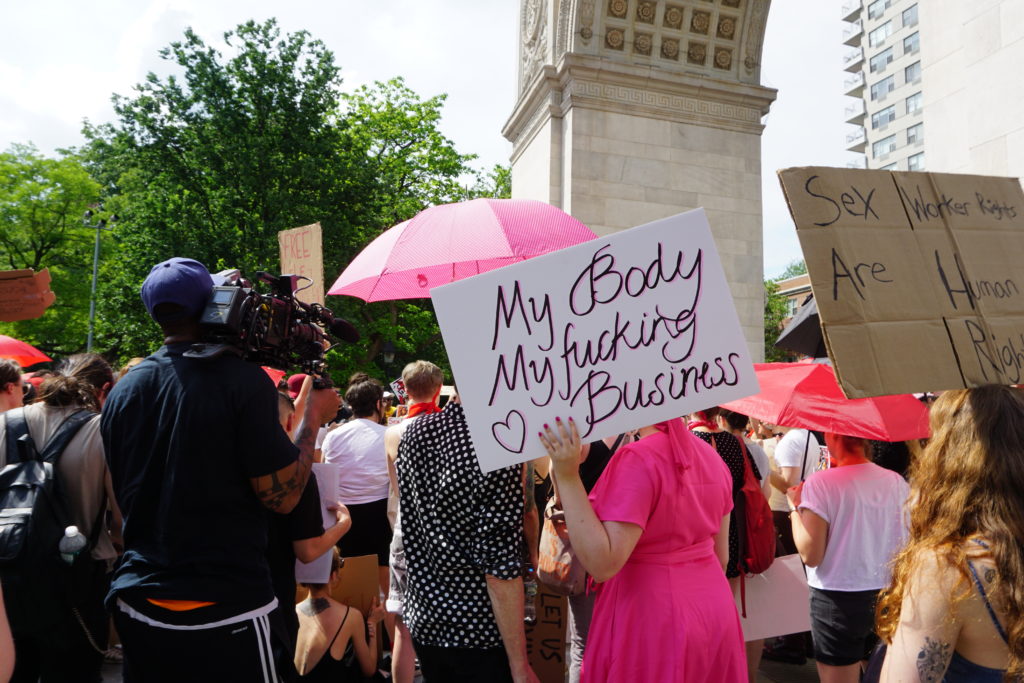
International Whore’s Day Rally for Sex Worker’s Rights. June 2nd, 2018. “My Body. My Fucking Business.”
[40:38] On the question, “Is desire political?”
[40:57]
Wednesday: I think people wanna have this fantasy that their desires emanate just from them. […] Especially, our sexual desires, which are so personal. And of course, we’re creatures of biology as much as we are creatures of culture, and our sexuality happens at that intersection. I like to say that female sexuality happens at the confluence of the clitoris and the culture.
[43:21] How did little Wednesday learn about sex in the 70s? Why does she consider herself lucky?
[43:56]
Wednesday: We talk about this moment when, as a kid, we learned about sex, but I think that the learning is a very gradual, unfolding process—
Lila: And a series of moments, of course.
Wednesday: And a series of moments, and I think we need to think about that more. Not us, you and me, but as a culture.
65. the clitoris and the culture: horizontal with wednesday martin phd
People say “do what you love.” And I love sleepovers, spooning, sharing, sex, storytelling, and stargazing, among other things. So I metaphorically rolled them all up in audio form and called it a podcast. Welcome to horizontal! It’s Slow Radio. It’s intimacies of all kinds. It’s us in your ears, sharing secrets.
